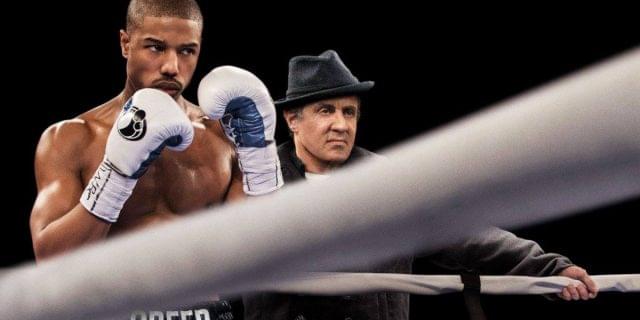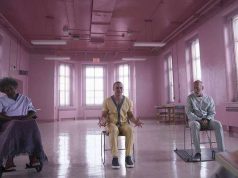
Some of the sequels make this easy to forget, but the original “Rocky” was a sweet, inspiring little drama without much showiness. It followed a formula, but only partially (a formula wouldn’t have let Rocky lose at the end), and it was about the characters more than it was about the boxing.
The sixth film in the series, “Rocky Balboa,” came closest to recapturing that spirit after parts III, IV, and (especially) V had turned the franchise into a lightweight parade of crowd-pleasing but derivative cliches. That return to form continues in “Creed,” a winning, heartfelt story about the son of Rocky’s opponent-turned-friend, who coaxes the Italian Stallion back from the pasture to train him. It’s the best Rocky film since the first one.
Adonis “Donnie” Johnson (Michael B. Jordan) is Apollo Creed’s illegitimate son, born shortly after his father’s death in the ring in “Rocky IV.” After a rough childhood of fist fights, foster homes, and juvenile detention, Donnie was adopted by Apollo’s wealthy widow, Mary Anne (Phylicia Rashad), an act of compassion that could fill a movie by itself. She has raised him well, and he has an unspecified perfectly suitable white-collar job, but what he really wants to do is wear shorts and punch guys for money.
Having gotten some ring experience winning unlicensed fights in Tijuana (as one does), Donnie heads to Philadelphia, where Rocky (Sylvester Stallone) is happily shuffling around his restaurant and enjoying being old. He has no interest in training anyone, but it’s hard to say no to Apollo Creed’s son. Donnie, for his part, has inherited some of his father’s strength and agility but not his ego. Nothing has come easily for him. He refuses to fight under the name Creed because he doesn’t want any special treatment … or any unreasonable expectations.
There is a formula at play here — nobody will accuse “Creed” of reinventing the boxing movie — but it’s elegantly used, with little touches that add flavor to the familiar recipe. Directed by Ryan Coogler (who made Jordan’s “Fruitvale Station”) and written by him and Aaron Covington, “Creed” is, at its center, an underdog story about a self-taught boxer facing a seasoned pro, in this case a Liverpudlian hothead named Ricky Conlan (played by real fighter Tony Bellew). That’s the same outline as “Rocky.”
But “Creed” has the benefit of taking place 40 years and six movies later, so it’s also about the burden of legacy, living up to your potential, and the inevitable decay of our human bodies. Adrian is gone. Paulie is gone. Rocky’s no spring chicken. Even Donnie’s beautiful young girlfriend, Bianca (Tessa Thompson), a singer, has progressive hearing loss. (This romantic subplot and a health scare with Rocky, while thematically appropriate, are the two elements that make the movie feel slightly overlong.)
Coogler acknowledges our history with these characters without any winking self-awareness. When there are specific references to past films, they arise naturally, not because Coogler has wedged them in. And Coogler adds his own flourishes, too, including a great match between Donnie and an early opponent that’s captured all in one unbroken take, the camera bobbing around the ring like a third fighter. The match that ends the film is suitably thrilling and brutal.
Not that it’s a contest, but Jordan, who is a better actor than Stallone, gives more emotional weight to Donnie than Stallone ever did to Rocky. (I won’t spoil it, but there’s a particular line Jordan delivers that made me burst instantly into tears.) That said, Stallone is endearingly vulnerable, the most human he’s been in years. If there is to be a new franchise, with Rocky as the crusty old trainer and Donnie as his protege, it’s off to a good start. I just hope the filmmakers, like the characters, learn from the mistakes of the past. That means not casting The Rock as the opponent in “Creed III,” fellas. Trust me.
A- (2 hrs., 12 min.; )





